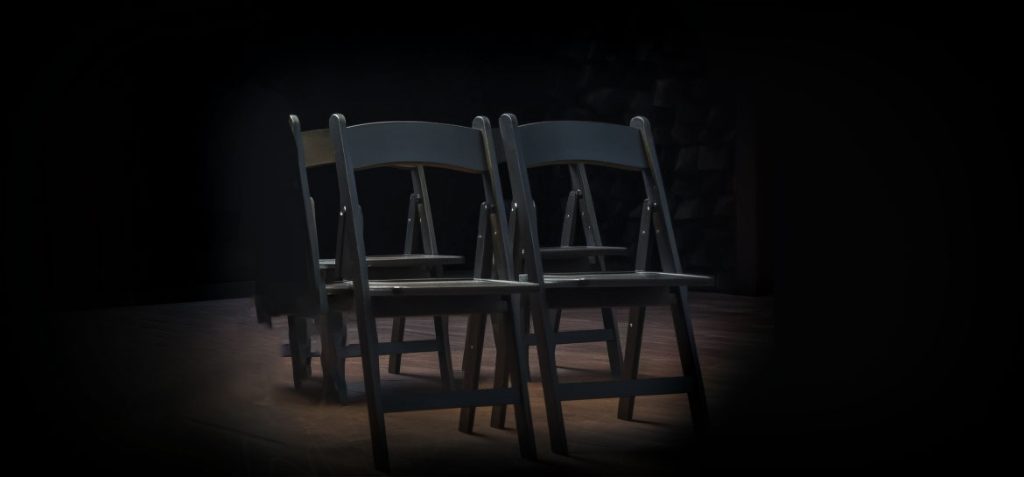
“Every time you leave I’ll try to let go a little more. But every time, I’ll be waiting to hear your key in our front door.” – The Mother in dwb (Driving While Black)
It’s a feeling that most parents are familiar with – the anxiety that occurs when their teenager gets behind the wheel – intensified for Black mothers of sons coming of age in a society plagued by racism and inequality, which is the basis of the chamber opera dwb (Driving While Black) presented this month by Greensboro Opera.
David Holley, General and Artistic Director of Greensboro Opera and Director of UNC Greensboro’s Opera Program, says it’s a story that needs to be told:
“There’s a universality to this story. She’s sitting there waiting for her son to come home. I thought, I can relate to that. I taught my sons how to drive. I remember watching them go out that door and get in a car and then waiting for them to get in safely. But there are certain things I will never experience, things that I can’t possibly understand. There are certain realities that need to be discussed.”
Written by composer Susan Kander and librettist Roberta Gumbel, dwb takes the audience on a 16-year journey of mother-son interactions, through two storylines – one internal, one external. The Mother relates to her child as a passenger in her car: bringing him home as a baby, picking him up from school, and finally, teaching him how to drive. Woven between these scenes are a series of vignettes based on real incidents of racial profiling and murders of Black men by police.
dwb packs all of that into a hauntingly beautiful 45 minutes. The set is sparse: a platform with four chairs represents the car. There are only three people on stage – a vocalist (librettist Roberta Gumbel) who portrays The Mother and other characters plus a cellist and a percussionist who, in addition to providing the music, are active parts of the drama as narrators and witnesses.
As impactful as the performance is, Holley believes that what happens afterwards may be even more important:
“Each performance will be followed by a community talkback session. It will be moderated, and we’ll gather questions ahead of time. The Assistant Deputy Chief of the Greensboro Police Department will be part of the conversation because GPD has a division that addresses these issues. We’re presenting dwb in four locations – two of which we think will have a predominantly Black audience, the other two might be predominantly White. It’s important to us to take this out into the community. Trying to make opera accessible as an art form has been one of my missions and will be for a long time. Greensboro Opera has pledged to commit to social equity and to use opera not only to entertain, but to educate.”
This piece also speaks to the work being done at UNCG’s College of Visual and Performing Arts with the leadership of Dean bruce mcclung, striving to decolonize the curriculum and de-center Whiteness. One of the performance locations is in the UNCG Music Building.
Thursday June 22 1:00pm
Tew Recital Hall at UNCG School of Music
100 McIver Street
Thursday June 22 7:30pm
Mount Zion Baptist Church Chapel
1301 Alamance Church Road
Saturday June 24 1:00pm
Guilford Park Presbyterian Church
2100 Fernwood Drive
Saturday June 24 7:30pm
Paul Robeson Theatre at NC A&T
1601 East Market Street d
dwb is sung in English. The performance length is approximately 45 minutes with a special post-show discussion. This production contains adult themes and is recommended for high school age and older.
Buy Tickets
Learn more about studying Opera at UNCG
Story by Terri W. Relos
Image provided by Greensboro Opera